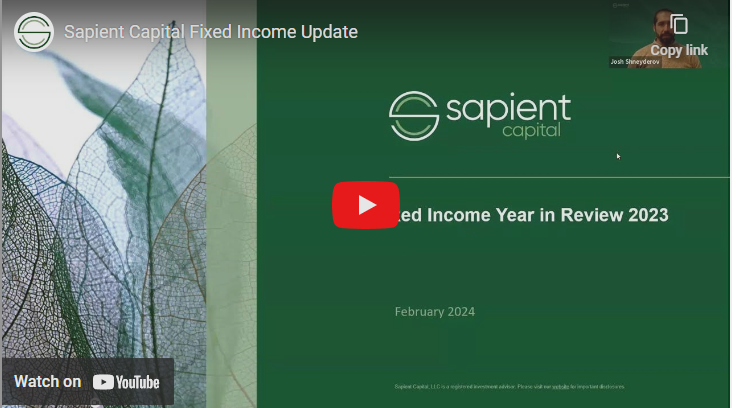Astrology, Hypnosis and “Solving” the Stock Market.
[9 minute read]
“Until you make the unconscious conscious, it will direct your life and you will call it fate.”
– Carl Jung

Decline of the Understanders
Based purely on the scale and duration of their returns, it seems like the quantitative hedge fund Renaissance Technologies effectively “solved” the stock market. Their flagship Medallion Fund generated 62% annualized returns (before fees) and 37% annualized returns (net of fees) from 1988-2021.
On the rare occasions Renaissance has talked publicly, they’ve said they look for “signals that don’t make sense.” If causality is obvious, everyone else can see it and any edge gets rapidly traded away. Instead, Renaissance looks for persistent relationships in unusual places. As CEO Peter Brown once put it: “It turns out that when it’s cloudy in Paris, the French market is less likely to go up than when it’s sunny in Paris.”
For a while, butter production in Bangladesh was one of the global indicators with the highest correlation to the S&P500. It seems obviously spurious, but what if it isn’t? With enough information and computing power we might discover real complex relationships that were previously hidden to us.
Bloomberg’s Matt Levine has half-jokingly remarked that it’s a bit embarrassing for Wall Street that Renaissance only seems to hire astrophysicists rather than finance professionals.
People still read Graham and Dodd! People still invest by trying to understand the workings of the stock market, the economic fundamentals of an industry, the competitive position of a company. Doesn’t that seem like it should work? And then you have the scientists who don’t even know what asset class they’re looking at. The scientists seem to be ascendant these days.
What will happen to the understanders? Will the astrophysicists end up running the whole financial world? Will they think of Graham-and-Dodd fundamental investing the way they think of astrology now? It is a pretty story that has captured the imagination of many people for so much of history, but perhaps modern science will just expose it as superstition and wipe it away.
Many financial professionals are only looking for relationships in obvious places, the astrophysicists are dispassionately looking for relationships everywhere. One Renaissance employee said if it was up to him, stocks would just have generic numbers attached to them, not names. I have this uncomfortable image of elite quants looking at the noise generated by the vast bulk of the investing profession and chuckling at the irrelevant naivety. During my own time on Wall Street it seems like the conversation has slowly morphed from “I know more about this stock than anyone else” to “I know more about this obscure corner of market plumbing than anyone else.”
These are largely trading insights, not investing insights. Plenty of people use traditional financial principles to be hugely successful long-term investors. Indeed- realizing how sophisticated and competitive the short-term has become just highlights the advantages of playing a longer-term game.
But this example from the world of finance also illustrates one of the most interesting ideas I’m wrestling with right now: what forces lie beneath superficial analysis that can only be found using unconventional methods?
Time for Something New
“People today will mostly focus on the points of connection, the nodes of interest like stars in the sky. But the real understanding comes in the spaces in between, in the relational forces that connect and move the points.”
– Tyson Yunkaporta, Sand Talk
One of modernity’s fundamental mistakes is assuming everything can be solved by reducing things to their individual parts, rather than understanding the hidden forces affecting the whole.
The U.S. spends more on healthcare than any other country, yet has significantly worse outcomes. The same is true specifically in mental health. We have pioneered analytical diagnostics, but still fall down on treating or (even accepting) the forces that affect the whole person.
Reflecting on my own desperate experimentation with different mental health modalities, I remain fairly lukewarm on the value of talk therapy. It mostly seems like your limited intellect interviewing itself. And if there’s something buried deeper within your unconscious, talking alone isn’t going to get you there. It can feel like chipping away at the tiny visible top of an enormous iceberg. And yet we still mostly rely on the same analytical approaches that have repeatedly failed us. It’s a sad irony that our approach to psychological health seems to resemble the definition of insanity.
Within this context it’s been encouraging to see society open up to alternative methodologies. The psychedelic renaissance seems to be producing promising results, and I myself had a transformative therapeutic experience with ketamine treatment. But I believe my treatment was only successful because it allowed me to access something far below the waterline of my consciousness.
Last week Jim O’Shaughnessy hosted an Infinite Loops podcast with hypnotherapist Todd Goodwin. Goodwin claims that hypnosis can be dramatically more effective than many more “conventional” healing practices:
Changing the way people think and feel at a deep level, that does not require the willpower, the effort, the constant reminders, the infinite level of self-analysis that is otherwise required in healthcare…
… The average person, I see only five to seven times over a month or two. And most of the time, they get really great results. And then they say, “Well, why doesn’t everyone do this?” And I say this is the best kept secret that’s not a secret.
Why does all the willpower in the world fail to produce six-pack abs? Why do “Atomic Habits” not lead to internal harmony? Why can’t I talk myself to a meaningful life?
Goodwin says the root causes he addresses are mostly trauma-related.1 The suggestion is that hypnosis can address the psychic gravity of the unconscious, rather than provide a superficial analysis of our conscious motivations. We can then resolve deep causes, rather than merely band-aid the visible symptoms.
How does this relate back to business and investing? More than you might think. Author William Green has studied many of the world’s finest investors for his book Richer, Wiser, Happier. He has said of investor Arnold Van Den Berg:
“If I had to choose just one role model from all of the remarkable investors I’ve interviewed over the last quarter of a century, it would be him.”
Van Den Berg was focused on harmonizing conscious and unconscious and is a big proponent of hypnosis as a method of doing it. Eventually he even learned to hypnotize himself.
Weird Science
“Millionaires don’t need astrologers, but billionaires do.”
– John Pierpoint Morgan
Matt Levine joked that we may come to see fundamental security analysis as a superstition like astrology. But I actually wonder if we will slowly rediscover that some beliefs we have skeptically dismissed as “woo” may have a stronger scientific basis than we first realised. I have a playful fantasy that Renaissance doesn’t just hire astrophysicists, it hires astrologers too.
There is probably enduring alpha in things like astrology specifically because it seems so silly. We need to be more open to looking in unusual places. Especially the ones skeptical rationalists think are ridiculous. The idea that the invisible forces of gigantic celestial bodies might influence our behaviour, and therefore markets, is hardly ludicrous. Gravity doesn’t care whether you believe in it. But hypnosis and astrology both cause defensive reactions specifically because they threaten our egos with the suggestion that we’re influenced by things that are beyond our conscious awareness. I don’t have a strong view on the efficacy of either, but I do believe happiness often lies in the temporary suspension of our ego’s desire to explain and control everything. Cultivating your own sensitivity to hidden forces, or making “the flip”, can meaningfully improve your quality of life.
From the outside at least, it appears that Renaissance has dominated investing because they accept the power of forces that defy immediate explanation. If you’re looking for answers in the same places as everyone else, be prepared for average results.
This is yet another example of openness to crazy, or merely unexplained, ideas being a source of growth and flourishing. You evolve fastest by willingly exposing yourself to ideas that challenge your settled worldview.
“[Self-actualizing] people are relatively unfrightened by the unknown, the mysterious, the puzzling and often are positively attracted by it.”
-Abraham Maslow
Related Reading & Listening.
- Podcast: High-Quality Investing with Christopher Begg (2 hour 6 minute listen). This is one of the best interviews I’ve heard in a long time. Chris Begg runs East Coast Asset Management and teaches the value investing class at Columbia. He just recorded a podcast with William Green, a lovely British writer. I know both men personally and it’s an incredibly rich conversation about wisdom and quality in investing (our obsessions here at Sapient). In keeping with today’s piece, Chris is also highly focused on multi-disciplinary learning in areas far beyond the remit of traditional finance.
- “I think all value creation is the source of reducing entropy in actually increasing information and therefore creating value. And so how do you reduce entropy? Well, you do something cheaper, better, or faster.”
- Podcast: A Manifesto for Weird Science by Michael Garfield (1 hour 3 minute listen). I had the good fortune to run into Michael this week. He funs a fascinating podcast, Future Fossils, that explores taboo-but-meaningful areas of science. One of the most unexpected things to happen to me in the last year is the number of otherwise highly credible people who have confided that there’s much more to astrology than the “dumb newspaper horoscope” perception. Michael wonders if we called it “cosmobiology” perceptions might change.
Footnote:
- This is a highly-charged topic that’s been carefully handled by Ali Beiner’s excellent article.
Sapient Capital, LLC is a registered investment advisor. Advisory services are only offered to clients or prospective clients where Sapient Capital and its representatives are properly licensed or exempt from licensure.
The content is provided for educational and informational purposes only and is not intended to be investment advice Investment advice is rendered to clients on an individualized basis in connection with a full review of the client’s situation. Please contact us with any questions.


